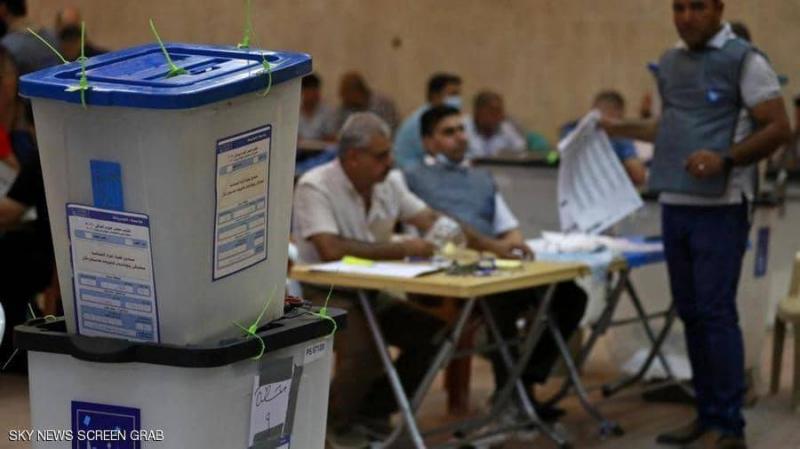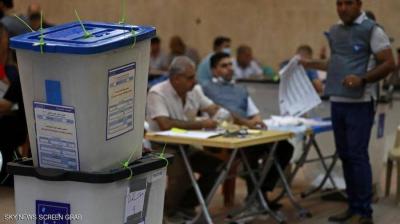The manual counting, sorting, and auditing operations conducted by the Independent High Electoral Commission in Iraq continue for several days following various appeals and objections received from multiple competing political factions. These groups expressed skepticism over the preliminary results announced for the elections held last Sunday, which showed a lower number of seats compared to previous elections.
There are growing fears among the Iraqi public of a slide into chaos and confrontation, with accusations exchanged between the competing lists and doubts raised by some regarding the integrity and transparency of the electoral process. In its latest statement released late Thursday night, the commission clarified that “the announced results are preliminary and were issued in adherence to the commission's commitment to present results to the public within 24 hours,” which included: First: announcing the electronically obtained results. Second: announcing the results from the manual counting and sorting stations at polling centers, showing a 100% match. Third: the final phase of counting and sorting is underway for 3,681 restricted stations, of which 70% have been completed, while results from the remaining stations have been sent. Once this is finished, results will be announced and validated, leading to the final results, followed by a three-day period for objections regarding the final results.
The commission revealed that all these operations are being conducted in the presence of a United Nations team, European Union observers, local monitors, human rights groups, and the high security committee, as stated in its announcement.
Commenting on the situation, Hafez Al-Janabi, an advisor to the parliamentary committees in the Iraqi Parliament, said in an interview with "Sky News Arabia," “According to the law governing the Independent High Commission, it has the right to resort to manual counting to eliminate ambiguity. I believe that due to the current murkiness stemming from repeated objections, the commission will take quite some time to finalize and announce the definitive results, which may be delayed until mid-November.”
He added, “The results will then be sent to the Federal Court for validation before returning to the commission to hold the first session in the new parliament, headed by the eldest member, to select a president and two vice-presidents for the council. The major challenge, of course, will be in choosing the next president of the republic, which requires a two-thirds vote from the deputies, so I think the process will be extensively delayed due to political intersections.”
In the latest cautionary statement about the potential for escalation, a joint statement from Iraqi President Barham Salih and Chief Justice Faik Zidan was issued on Friday. It emphasized that “the objections regarding the electoral process are acceptable within a legal framework, and handling them should be according to the constitution and law as the final arbiter. We affirm our support for the electoral commission and the judicial authority concerned with following this file diligently and responsibly while reviewing all complaints and objections submitted to the electoral process with high professionalism and complete neutrality.”
The Iraqi presidential statement added, “We urge all parties to adopt a responsible national stance that considers the country’s higher interests, committing to de-escalation, prioritizing reasoned dialogue, and avoiding any escalation that could affect social peace and security. There is a pressing need for coordinated efforts to meet the national entitlements awaiting the country by forming a parliament that reflects the will of the people and responds to their aspirations for reform and development, working towards establishing a functioning government that protects the country’s higher interests by establishing a capable state that fulfills the people’s aspirations for a better future.”
The early parliamentary elections held last Sunday recorded a participation rate of 41% according to the commission, with more than 9 million voters casting their votes out of around 22 million eligible voters who possess long-term and short-term biometric cards. Thus, these elections are considered to have the lowest turnout among the five electoral cycles held in Iraq since the fall of Saddam Hussein's regime.




